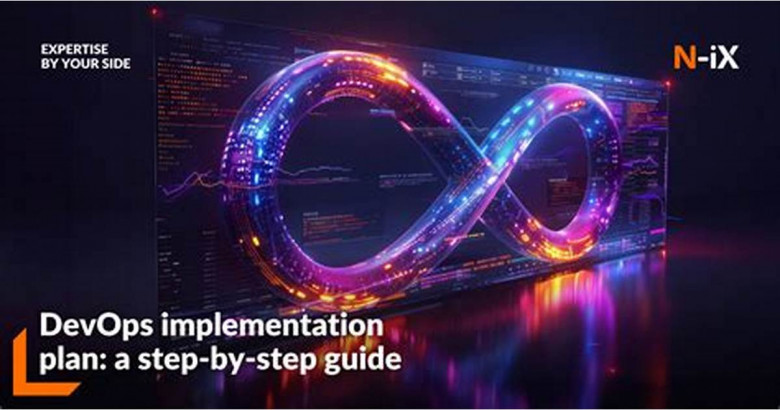views
In today’s digital-first world, the pace of software development is faster than ever—and organizations are under pressure to release better products, more often, with fewer bugs. That’s where DevOps comes in.
DevOps is not just a set of tools—it’s a culture, a methodology, and a game-changing approach to building, testing, and delivering software. By bridging the gap between development (Dev) and operations (Ops), DevOps ensures speed, stability, and continuous innovation across the software lifecycle.
🚀 What is DevOps?
DevOps combines software development and IT operations to shorten the development lifecycle and deliver high-quality software continuously. It promotes collaboration between teams, automates workflows, and creates a feedback loop that enables rapid, reliable deployments.
Key goals of DevOps:
-
Faster Time-to-Market
-
Continuous Integration and Continuous Delivery (CI/CD)
-
Improved Collaboration
-
Automated Testing & Deployment
-
Infrastructure as Code (IaC)
-
Scalable, Resilient Systems
⚙️ Core Components of DevOps Services
DevOps services are typically built around several key areas:
1. CI/CD (Continuous Integration & Continuous Delivery)
-
Automates the process of building, testing, and deploying code
-
Ensures that small code changes are tested and deployed quickly
-
Reduces manual errors and ensures consistent delivery
Tools: Jenkins, GitLab CI, CircleCI, Travis CI
2. Infrastructure as Code (IaC)
-
Manages and provisions computing infrastructure through code
-
Makes infrastructure consistent, repeatable, and scalable
Tools: Terraform, Ansible, AWS CloudFormation, Chef
3. Configuration Management
-
Standardizes and manages server configuration across environments
-
Reduces “it works on my machine” issues
Tools: Puppet, Ansible, SaltStack
4. Containerization & Orchestration
-
Packages applications and their dependencies into containers
-
Manages container lifecycle and scaling
Tools: Docker, Kubernetes, Helm
5. Monitoring & Logging
-
Provides insights into system performance and stability
-
Enables proactive issue resolution and performance tuning
Tools: Prometheus, Grafana, ELK Stack, Datadog, Splunk
6. Security Integration (DevSecOps)
-
Embeds security throughout the DevOps lifecycle
-
Automates security checks without slowing down delivery
Tools: Snyk, Aqua Security, Twistlock
🧩 Why DevOps Matters: Business Benefits
Adopting DevOps has significant ROI for businesses of all sizes:
| Benefit | Impact |
|---|---|
| Faster Releases | Cut down deployment times from weeks to hours |
| Increased Stability | Fewer outages, faster recovery times |
| Higher Quality | Catch bugs earlier, reduce technical debt |
| Better Collaboration | Break silos between Dev, QA, and Ops |
| Scalable Infrastructure | Automate scaling during high-demand events |
| Continuous Feedback Loop | Constant improvements from real-time data |
Whether you’re building a SaaS app or an enterprise platform, DevOps helps you move faster without breaking things.
🛠️ DevOps at Hexadecimal Software
At Hexadecimal Software, we offer end-to-end DevOps services to streamline software delivery, improve quality, and accelerate innovation.
🔧 Our DevOps Offerings:
-
DevOps Assessment & Strategy
-
CI/CD Pipeline Setup
-
Cloud Infrastructure Automation (AWS, Azure, GCP)
-
Kubernetes Orchestration
-
24x7 Monitoring & Support
-
DevSecOps Integration
-
Migration to Microservices and Containers
We align DevOps with your business goals—so your teams can focus on innovation, not operations.
🌐 Cloud-Native & DevOps: A Perfect Match
As businesses move to the cloud, DevOps becomes even more essential. With cloud-native architectures, your infrastructure can scale dynamically, deployments can be automated, and resilience is built-in.
We help you build on cloud platforms like:
-
Amazon Web Services (AWS)
-
Microsoft Azure
-
Google Cloud Platform (GCP)
With tools like Docker, Kubernetes, and Terraform, we enable you to deploy apps across environments seamlessly.




Comments
0 comment